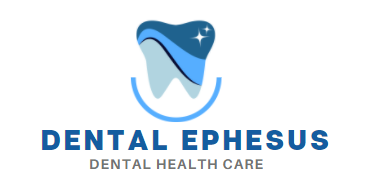When seeking treatment for a substance use disorder (SUD), you will learn that many levels of care are available. Outpatient therapy and inpatient, or residential, treatment are the two fundamental types of care. Outpatient treatment programs, as the names suggest, give treatments in an outpatient center, allowing the individual to continue living at home, whereas inpatient therapy provides accommodation for the individual at the treatment center.
The degree of the sort of treatment program required will be determined mostly by the severity of the SUD. Outpatient treatment is ideal for newly diagnosed or moderate SUD. Inpatient treatment is preferred for patients with moderate to severe SUD. Continue reading to learn more about the advantages of inpatient treatment and programme.
What Is Inpatient Care?
An inpatient treatment program offers the greatest degree of care for a substance abuse problem. These programs include 24-hour monitoring and assistance, as well as a regular schedule of rehabilitative activities. Among these activities are:
- Before beginning therapy, manage withdrawal symptoms
- Sessions of individual psychotherapy
- Group meetings
- Sessions are geared at families.
- When appropriate, medication-assisted recovery (MSR)
- Programming in 12 steps
- Case administration
- Sessions for developing skills
- Planning for relapse prevention and addiction education
- Activities that are holistic and experiential
- Nutritional advice and physical activity
Five Advantages Of An Inpatient Program
For people with a more severe SUD, inpatient treatments have significant advantages over outpatient therapy. These advantages include:
Structure: It is beneficial for someone starting their recovery path to be in an organized and predictable atmosphere. The inpatient treatment adheres to a rigid daily routine. This keeps the person engaged in their rehabilitation process throughout the day, and the consistent daily plan helps them build new healthy patterns.
Support 24/7: Close monitoring and continuous assistance are major advantages of selecting an inpatient program. This degree of supervision decreases the chances of someone obtaining drugs while in treatment. The restricted treatment setting, which includes a mobile phone ban, serves to dissuade potential substance usage.
Fully Customizable: The inpatient program develops a personalized treatment plan for each client. This enables tailored and intense therapy depending on the precise type of substance or substances implicated, as well as any co-occurring mental health disorders. A person with a co-occurring ailment has both a drug use disorder and a coexisting mental health disorder, such as depression or anxiety.
Integrated Treatment Elements: Each day of the week, an inpatient treatment program provides a weekly list of treatment elements. These therapies and activities are intended to work together to address the fundamental purpose. This goal focuses on leading the client toward fundamental adjustments in their thought and behavior patterns that will assist them in maintaining recovery. Experiential activities, therapy sessions, process groups, family group sessions, leisure activities, classes, and holistic activities are all incorporated into the curriculum.
Peer Support: When someone enrolls in an inpatient treatment program, they will be staying at the facility for a prolonged period. During this time, kids can build connections with peers who are engaging with them in group therapy sessions, classes, and meals. Because of their constancy, they might form a relationship and become part of each other’s support network once the treatment program is done.
The Value Of Aftercare
The aftercare, or continuous care, component of an inpatient treatment program is another advantage. Aftercare activities are effective in terms of promoting healing. These might include:
- Transitional housing, also known as sober living,
- Outpatient treatment
- Participation in a 12-Step group or a program such as SMART Recovery
- Making new acquaintances at alumni gatherings or other sober activities
Recovery is a continual process that begins with withdrawal management and progresses to thorough treatment, followed by aftercare activities.
























